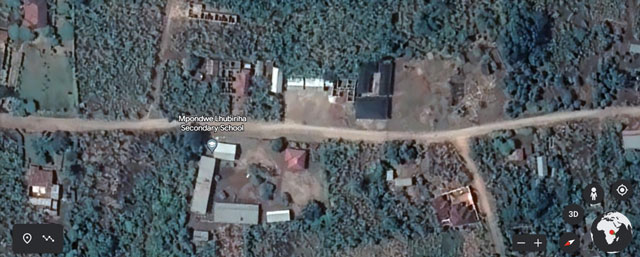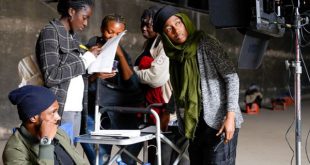
High drop-out rates feared as education bosses are arrested
Kampala, Uganda | RONALD MUSOKE | The recent attack on a secondary school in the western Uganda border district of Kasese that left at least 41 people dead; including 37 students, has left educators worried about its impact on children in a sub-region which suffers from high drop-out rates.
Within days after the attack the Kasese District authorities had ordered all the nearby schools to reopen without fail on June 21 vowing to punish those who defy the directive. This followed reports that a number of schools had closed due to the attack on Lhubiriha Secondary School.
Meanwhile, the fallout from the rebel attack on the school continues with authorities now arresting Kasese District’s education bosses.
The Independent understands police on June 22 arrested the Kasese District Education Officer, George Mayinja, and the Principal Inspector of Schools, Ernest Thabugha, to assist the authorities with ongoing investigations into the attack.
“Among the queries the police want the Principal Inspector of Schools to answer is why the attacked school has been operating under different names and whether the school was properly inspected and certified to have a boarding section,” Godfrey Kabbyanga Baluku, the state minister for ICT and National Guidance told The Independent on June 23.
The attack, in which 17 boys were burnt to ashes and 20 girls hacked to death in their dormitories, has since created fear in the community and reports indicate some schools had decided to close and send students back home.
Following the attack, George Mayinja, the District Education Officer called for calm and asked school heads to reopen and resume serious teaching. He also asked schools to relaunch the school security committees. He also outlawed students from talking about the recent attack. Schools have also been asked to hire at least two security guards with one to work during the day and the other in the night.
Minister Baluku told The Independent on June 23 that normalcy has returned to the communities which neighbour the school which was attacked.
“The children had run away together with their parents to Mpondwe-Lhubiriha Town Council for safety but they are coming back. Apart from the attacked school, no school closed and children of the neighbouring schools have returned.”
But, Florence Kabugho, the Woman MP (FDC) for Kasese District told The Independent on June 23 the children were asked to go back to school but some of them are yet to return because they are still traumatized.
“Some parents are still scared and have picked their children (those in the boarding sections of the schools in the area). Some of the parents think the deployment of security in the area is still not sufficient. We need enough deployment at the border.”
“We don’t need the money (condolences sent by President Yoweri Museveni); we need more deployment of security at the border because it is the constitutional mandate of the UPDF (national army) to protect the lives and property of all citizens of Uganda,” she told The Independent.
However, despite the government urging parents to remain calm and take back their children whom they had picked and whisked to safety, The Independent understands, many are still reluctant to do so.
First Lady’s message
During her briefing of the nation on June 17, the First Lady, Janet Museveni, who is the Minister of Education and Sports, sought to re-assure parents in the sub-region and the country of their children’s safety in school.
“Parents across the country, please do not panic, our children are safe and they will remain safe. They are evil and they are trying to harm our children but they will not always manage,” she said.
She noted that among the facts the government had gathered was that a larger school of 700 students in the neighbourhood had been spared by the attackers and they instead went for Lhubiriha Secondary School with a population of 63 students.
“There is also another point that came up that this school has been, there has been groups in Kasese who wanted to take it over but because the school was built by an NGO, there has been that conflict between those groups that wanted to take over the school and the NGO which actually built the school, so there was that background. Those are the facts that are not yet very clear but that is the information that is coming in, and that we have received so far.”
“In this school, the one we are talking about had 63 students only in the school and now 37 have been killed. This other school, Nyabughando Baptist School was a larger school and by God’s grace it is safe, it had some 700 students but it is safe, nothing happened so it shouldn’t be mixed up with this other school that had a problem Lhubiriha.”
“There is an impression that perhaps the terrorist group may have been used by the people who were fighting to take over the school to do what they have done but that information will come out at a later stage because the government is going to have to find out and get the actual information.”
Apparently, the education minister noted, the benefactor who she said is called Peter Hunter, a Canadian, had recently, sent his auditors to the school to audit the finances that the NGO supports the school with.
“The auditors spent two days at the school auditing the school’s books of accounts and left a day before the rebel attack. That is not to say that we relate these auditors being there but those are the facts,” she said.
International reaction
On June 17, the day after the bloodbath at Lhubiriha Secondary School, the Doha-based global education foundation, Education Above All (EAA), condemned the attack allegedly by the Allied Democratic Forces which operates out of the eastern Congolese jungles.
The foundation said the deliberate targeting of students and educational facilities is a serious escalation in the conflict in Uganda and the DR Congo.
“Education Above All Foundation condemns all attacks on students and educational institutions, and to prioritize the needs of children during these challenging times, in Uganda and around the world.”
In October, 2021, the UN Security Council unanimously passed Resolution 2601 to demonstrate a global consensus that all parties to armed conflict must safeguard the right to education and ensure that schools are protected safe spaces for all.
Maleiha Malik, the Executive Director of EAA’s Protect Education in Insecurity and Conflict Programme, called for “those who deliberately attack education to be held accountable.”
“The international community must insist that all parties to the conflict adhere to international law and respect schools as safe places where students and teachers can learn, teach and play,” she said.
She said attacks on education have the potential for longer term harm to education systems and the provision of education to children and young people in Uganda, DR Congo and Eastern Africa.
Dr Mary Joy Piegozzi, the Executive Director of Educate a Child, one of the foundation’s flagship programmes which supports the hardest-to-reach out of school children around the world facing barriers such as poverty, discrimination, conflict, challenging geographical terrain and climate change said, “The killing and abduction of children and young people in a school is abhorrent.”
“What future can these young people see if secondary education holds the promise of the loss of those dear to them, torture, or a gruesome death? The global community must call for an end to all attacks on education and hold perpetrators to account,” she said.
In Uganda, the programme has in recent years been working with some of its partners to enroll over 400,000 formerly out of school children at primary level over the last decade while another 150,000 are waiting to enroll. The foundation noted in a statement that it will continue to work in conflict affected situations to ensure that the most vulnerable children have access to quality education.
Pope Francis, Antonio Guterres, the Secretary General of the United Nations, the African Union, the East African Community and the Organisation of Islamic Cooperation have all condemned the terror attack which left 58% of the school’s student population dead.
“The Secretary-General extends his heartfelt condolences to the families of the victims and the Government and people of Uganda. He calls for the immediate release of those abducted,” a statement from the UN Secretary General’s Office published on June 17, reads in part.
“The Secretary-General reiterates the importance of collective efforts, including through enhanced regional partnerships, to tackle cross-border insecurity between the Democratic Republic of the Congo and Uganda and restore durable peace in the area.”
The attack on Lhubiriha Secondary School brought back memories of another deadly attack on the Uganda Technical College, Kichwamba, near Fort Portal City in Kabarole District in 1998. That brutal attack by the ADF left 80 students killed.
 The Independent Uganda: You get the Truth we Pay the Price
The Independent Uganda: You get the Truth we Pay the Price


